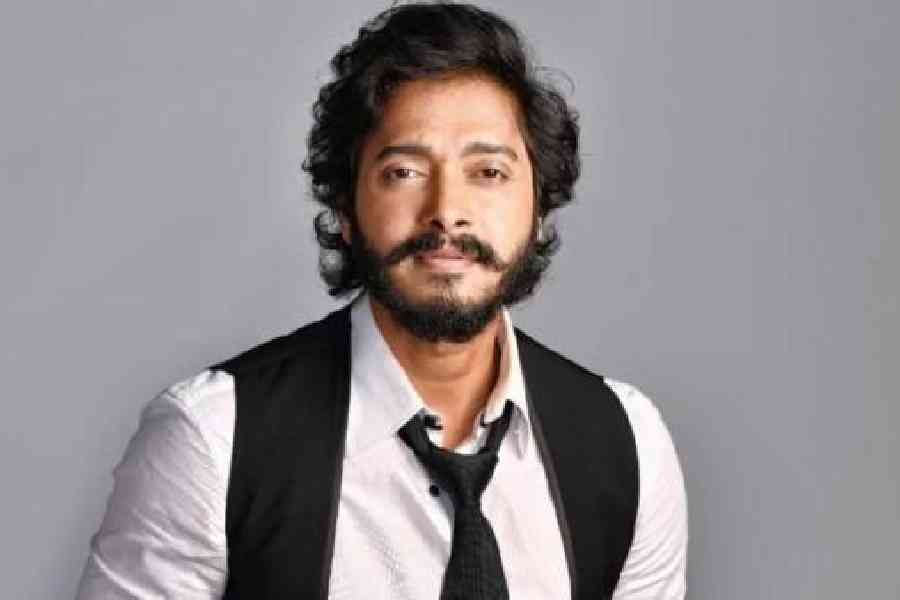It was a poignant coincidence. Five years ago, on the night of December 12/early hours of the 13th, Moushumi Chatterjee lost her daughter Payal.
On December 12 this year, the actress returned to a film set. In the last two years, Moushumi has sparkled on a clutch of reality shows, attended a few awards nights and given unwitting bytes that crossed a million views. A timeless one was on the red carpet of the Critics’ Choice Awards in March where she smiled at the photographers but didn’t pause long enough to pose for them. I’d joked, “She’s the new Jaya Bachchan” which had prompted her to return and tell the paparazzi, “I’m a better person than Jaya Bachchan”.
But for all her outward bravery and consistency in not showing grief in public, it has taken Moushumi five years to return to where she’s been a natural since she was a schoolgirl. She debuted with Tarun Majumdar’s Balika Bodhu (1967). She has returned with Aari, also in Bengali.
Former TMC MP Nusrat Jahan and Yash Dasgupta, who began their production house YD Films with Sentimentaaal this year, have signed Moushumi after a series of negotiations. She plays Yash’s mother in Aari.
Back home in Mumbai, Moushumi is backing an RD Burman night to be held on January 3. The next day will be Panchamda’s 31st death anniversary.
Mumbai is also where a silent movement is taking birth after the blockbuster success of Pushpa. The expected debates over it will be commerce vs aesthetics, its overtly sensuous dance moves, or how a dubbed version has mopped up more collections in the Hindi belt than the Telugu original did in its home state. But the unexpected movement is originating not at the box office but in Mumbai’s dubbing rooms.
Receiving overwhelming accolades are Hindi film actors Shreyas Talpade and Rajesh Khattar, the voices behind Allu Arjun and Fahadh Faasil, who plays Shekhawat, the police inspector.
Shreyas used the limited tools from the small 4ftx10ft dubbing room to enhance Allu’s Hindi performance. He tried chewing paan like Allu did on screen but found his voice went for a toss. That was when he used cotton wool to deliver the dialogues with sharp clarity while matching Allu’s on-screen intensity and versatility. For a dialogue that Allu delivered while planting quick kisses on his wife, Shreyas kissed his own fingers to produce the right sound in-between his lines. The ultimate compliment came when his mother watched Pushpa 2 in the theatre to check out the fuss over her son’s work. Mom even closed her eyes during some scenes just to hear him and came away impressed that he’d made such an impact.
But this movement is not about how flawless dubbing enhances a performance. It’s about the rights of a dubbing artiste. Shreyas has been in conversation with the Voice Artistes’ Association to see if a tiny percentage of a film’s earnings can go to the association and be shared with the artiste.
“We cannot underestimate the contribution of a voice artiste,” agreed actor Rajesh Khattar, whose 25-year experience as a dubbing professional gave Shekhawat all the quirkiness his character required. “After a long-drawn-out fight, lyricists, singers and composers now get royalty. The collections of the films I have dubbed for have crossed ₹2,500 crore. The Hindi versions of Pushpa 1 and 2 are in the range of over ₹7 crore. I’m not even calculating web series like Money Heist (he was Berlin’s voice). Look at the billion-dollar earnings of Iron Man and Avengers: End Game or Da Vinci Code. Just 0.1 per cent of those will keep my family going for seven generations.
“We may be the scapegoats or the pioneers. I don’t know. But talks have started,” Iron Man’s voice emphasised.
Brace yourselves for a face-off more potent than Pushpa vs Shekhawat.










